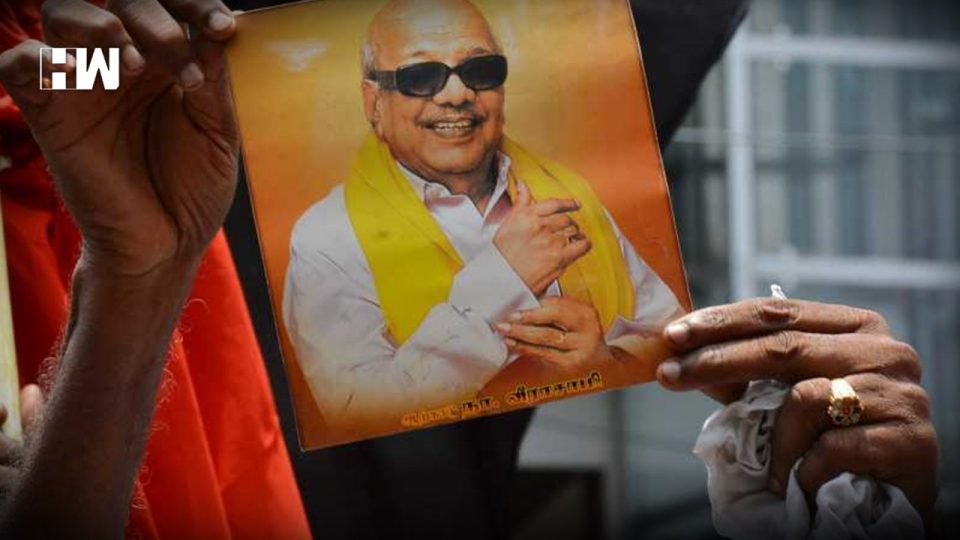Karunanidhi, a towering political leader from the last generation with a political career spanning 75 years started as a teenager prior to Independence with Periyar’s social justice movement and continued as a mascot for Annadurai, a lieutenant of Periyar who opted for electoral politics. He was himself CM for 19 years over 5 terms and the party president of DMK for 50 years.
Professionally a dialogue writer for Tamil films he gained more prominence than the actors who delivered his dialogues. All his life he remained steadfast in his views expressed through his dialogues and prolific writing.
He was a secular opposing religion in civic affairs and rabid in his anti-Brahmanism. An advocate of social equality, he was a pioneer of affirmative action for social upliftment of the Dalits who had hitherto been excluded from political power. Avoiding populist measures as CM, he focused on developing schools and healthcare facilities to bring the underprivileged into the mainstream.
He never aspired for national politics and remained a Tamilian leader throughout his career. He was a great admirer of the Tamil language and culture and was instrumental in the development of federal polity in India as opposed to the Unitarian political culture of the Congress. At times his advocacy of Tamil rights bordered on Tamil separatism.
The only blot in his political career was his corruption because of which his one time deputy, MGR parted company to form the AIADMK. He was also criticised for his dynastic politics of later years when he tried to give charge to his daughter in the Centre, southern districts to his elder son based in Madurai while selecting his younger son Stalin as his successor. But then, a father has the responsibility to settle his children.
India was consciously divided into linguistic lines with each state having its own literature, culture, dress, food, festivals etc. The Union has by and large promoted uniformity by suppressing diversity. The federal ethos celebrates diversity and, in India especially, in my view, we have had an attempt of an excessive uniformity imposed that has been detrimental to our rich regional cultural heritages.
In that sense MK was a man advocating pride in Tamil culture. More than the relative merits of centre-state choice is the existence of the dialectic of pulls and pressures from both sides to attain a dynamic balance that keeps pace with the changing times. His anti North and anti Hindi agitations, widely criticised, must be seen in the context of promoting regional pride.
Of course, MK is very unpopular among Tamil Brahmins. But then the local Brahmins had a disproportionate hold on social and cultural power in TN for centuries. Breaking their hegemony was necessary for a social change towards greater egalitarianism. With them being pushed back, the knowledge and skills that they were custodians of, also suffered.
But then I am speaking in the capacity of a neutral bystander. Interested parties would rejoice or suffer the pangs of socio political change a lot more acutely.
His legacy is important to understand the implications of equality, secularism, federation and social change – issues that are in focus in our political discourse right now.
If only the conversation can move beyond his obvious corruption.
As an independent media platform, we do not take advertisements from governments and corporate houses. It is you, our readers, who have supported us on our journey to do honest and unbiased journalism. Please contribute, so that we can continue to do the same in future.

